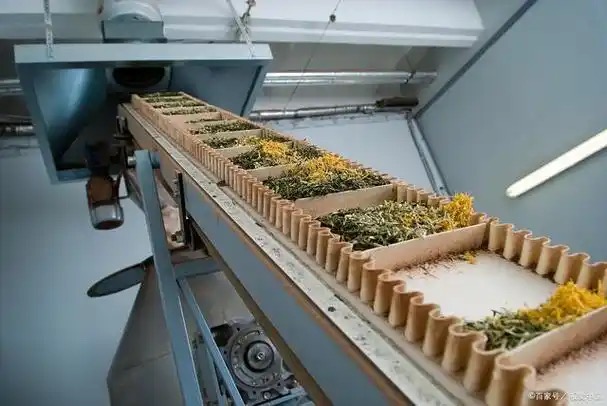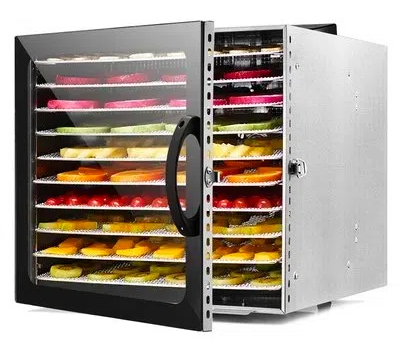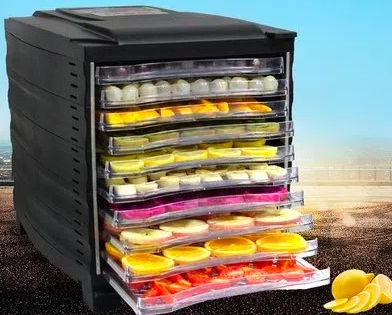
Content Menu
● Understanding Heat Pump Dryers
● Benefits of Using Heat Pump Dryers
● Applications of Heat Pump Dryers
● Comparing Heat Pump Dryers with Other Types
● Finding the Best Deals on Heat Pump Dryers
● Challenges and Considerations
● Technological Advancements in Heat Pump Dryers
● Conclusion
● FAQ
>> 1. What are heat pump dryers used for?
>> 2. How do heat pump dryers differ from traditional dryers?
>> 3. Are heat pump dryers suitable for all types of food?
>> 4. What should I consider when purchasing a heat pump dryer?
>> 5. Where can I find competitive prices on heat pump dryers?
Heat pump dryers are becoming increasingly popular in the food processing industry, particularly for drying fruits, vegetables, and meats. This article explores the benefits of heat pump dryers, their operational mechanisms, and how they compare to traditional drying methods. Additionally, we will discuss where to find the best deals on heat pump dryers for your business.

Understanding Heat Pump Dryers
Heat pump dryers utilize a sophisticated technology that recycles hot air to dry food products efficiently. Unlike conventional dryers that expel hot air, heat pump dryers condense moisture from the air and reuse it, making them more energy-efficient and environmentally friendly.
How Heat Pump Dryers Work:
- Air Circulation: The dryer pulls in ambient air, which is then heated using a compressor.
- Moisture Removal: The warm air circulates through the food items, evaporating moisture. The moisture-laden air is then cooled, causing the water vapor to condense and be collected.
- Recycling Air: The cooled air is reheated and recirculated back into the drying chamber, ensuring minimal energy loss.
This process not only saves energy but also maintains the nutritional quality of the food being dried.
Benefits of Using Heat Pump Dryers
Heat pump dryers offer several advantages over traditional drying methods:
- Energy Efficiency: They consume significantly less energy than conventional dryers, making them cost-effective in the long run. According to Energy Star reports, heat pump dryers are approximately 28% more efficient than traditional models.
- Uniform Drying: The controlled temperature and humidity levels ensure that food is dried evenly without hotspots that can lead to spoilage.
- Nutritional Preservation: By operating at lower temperatures, heat pump dryers help retain more nutrients compared to higher-temperature drying methods.
- Versatility: These dryers can handle a wide variety of products, including fruits, vegetables, herbs, and meats.
Applications of Heat Pump Dryers
Heat pump dryers are suitable for various applications in the food industry:
- Fruit Drying: Ideal for producing dried fruits like apples, peaches, and apricots while preserving their flavor and nutritional value.
- Vegetable Drying: Effective for drying vegetables such as carrots, peppers, and tomatoes.
- Meat Drying: Used for jerky production or preserving meats without compromising quality.
Comparing Heat Pump Dryers with Other Types
To better understand the benefits of heat pump dryers, it's essential to compare them with other types of dryers such as vented and condenser dryers.
| Feature | Heat Pump Dryer | Vented Dryer | Condenser Dryer |
| Energy Efficiency | Highly efficient (28% less energy) | Less efficient | Moderately efficient |
| Installation Flexibility | Ventless installation | Requires venting | Ventless but needs drainage |
| Drying Temperature | Lower temperatures (gentler on clothes) | Higher temperatures | Moderate temperatures |
| Maintenance | Regular lint filter cleaning needed | Minimal maintenance | Regular water tank emptying needed |
| Cost | Higher upfront cost | Lower upfront cost | Moderate upfront cost |
Finding the Best Deals on Heat Pump Dryers
When looking for the best heat pump dryer deals, consider the following tips:
- Research Manufacturers: Look for reputable manufacturers known for their quality products. Companies like Airtek offer a range of high-efficiency heat pump dryers tailored for various food processing needs.
- Compare Prices: Check multiple suppliers to compare prices and features. Many manufacturers provide direct factory pricing which can lead to significant savings.
- Look for Promotions: Keep an eye out for seasonal promotions or discounts that manufacturers may offer on their products.
- Consider OEM Services: If you are a brand or wholesaler looking to source equipment, consider working with manufacturers that provide OEM services. This allows you to customize products according to your specifications while benefiting from competitive pricing.

Challenges and Considerations
While heat pump dryers have many advantages, they also come with some challenges that users should consider:
- Longer Drying Times: Heat pump dryers typically take longer to dry clothes compared to conventional models. This can be a drawback for businesses needing quick turnaround times.
- Higher Initial Investment: The upfront cost of purchasing a heat pump dryer is generally higher than that of traditional dryers. However, this can be offset by lower energy bills over time.
- Maintenance Requirements: Regular maintenance is essential to keep these machines running efficiently. This includes cleaning lint filters and ensuring that coils are free from debris to prevent mold growth and maintain optimal performance.
Technological Advancements in Heat Pump Dryers
Recent advancements in technology have improved the efficiency and functionality of heat pump dryers:
- Moisture Sensors: Many modern models come equipped with moisture sensors that automatically adjust drying times based on the moisture content of the load. This feature not only saves energy but also prevents over-drying.
- Smart Technology Integration: Some heat pump dryers now include smart technology that allows users to monitor and control their machines remotely via smartphone apps. This feature enhances convenience and efficiency in managing drying cycles.
- Improved Designs: Manufacturers are continuously working on enhancing drum capacity and reducing noise levels associated with operation. Newer models often feature larger capacities suitable for commercial use without compromising on energy efficiency.
Conclusion
Heat pump dryers represent a modern solution for food dehydration needs in various industries. Their efficiency, versatility, and ability to preserve nutritional content make them an excellent investment for businesses looking to enhance their product offerings. By researching manufacturers and comparing deals, you can find the best heat pump dryer that meets your operational requirements while staying within budget.

FAQ
1. What are heat pump dryers used for?
Heat pump dryers are primarily used for drying food products such as fruits, vegetables, herbs, and meats while preserving their nutritional value and flavor.
2. How do heat pump dryers differ from traditional dryers?
Unlike traditional dryers that expel hot air after use, heat pump dryers recycle air by removing moisture and reusing it, making them more energy-efficient.
3. Are heat pump dryers suitable for all types of food?
Yes, heat pump dryers can be used for a wide variety of foods including fruits, vegetables, meats, and herbs due to their adjustable temperature settings.
4. What should I consider when purchasing a heat pump dryer?
Consider factors such as capacity, energy efficiency ratings, manufacturer reputation, warranty terms, and whether OEM services are available if you need customized solutions.
5. Where can I find competitive prices on heat pump dryers?
You can find competitive prices by researching various manufacturers online, comparing prices across different suppliers, and looking out for seasonal promotions or discounts.












